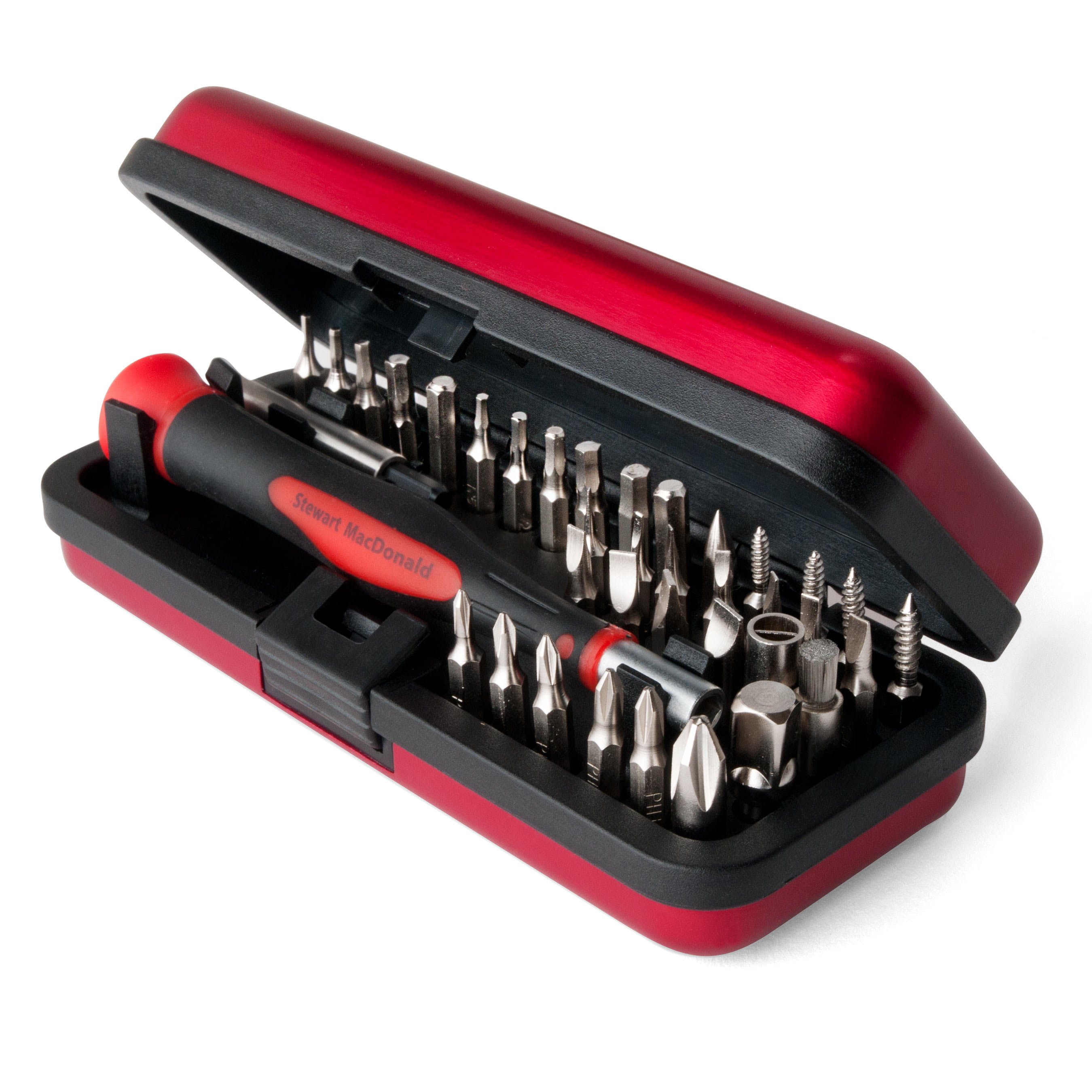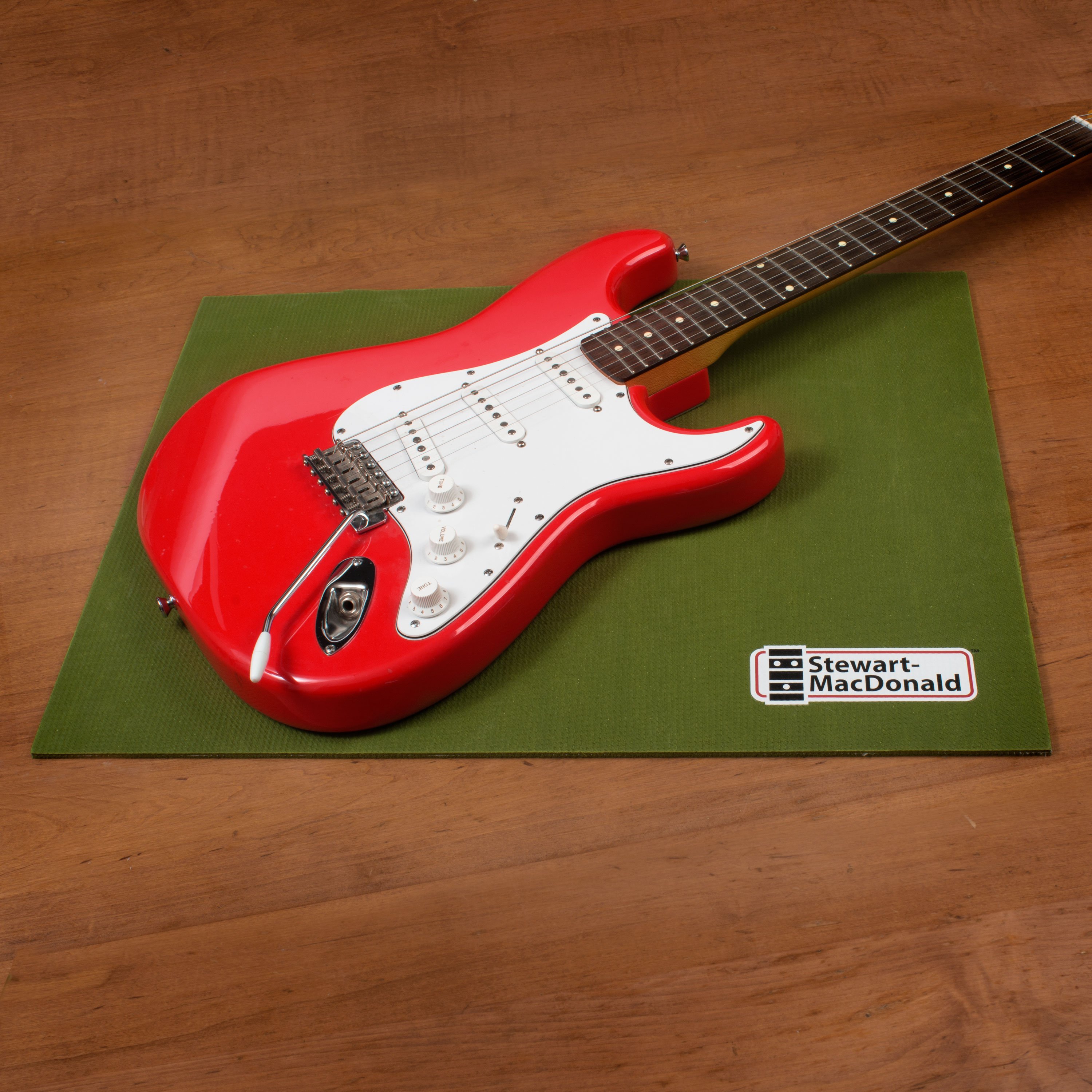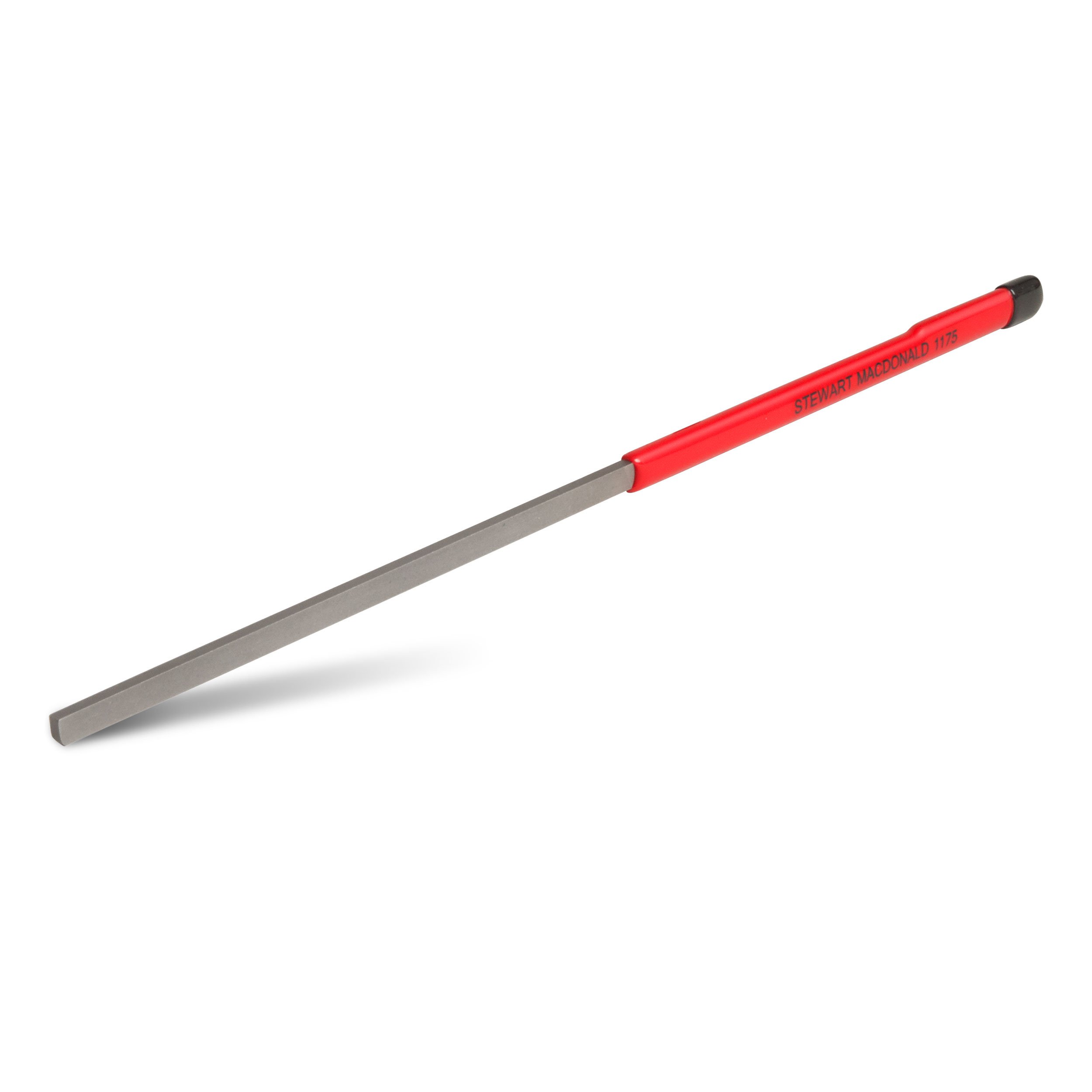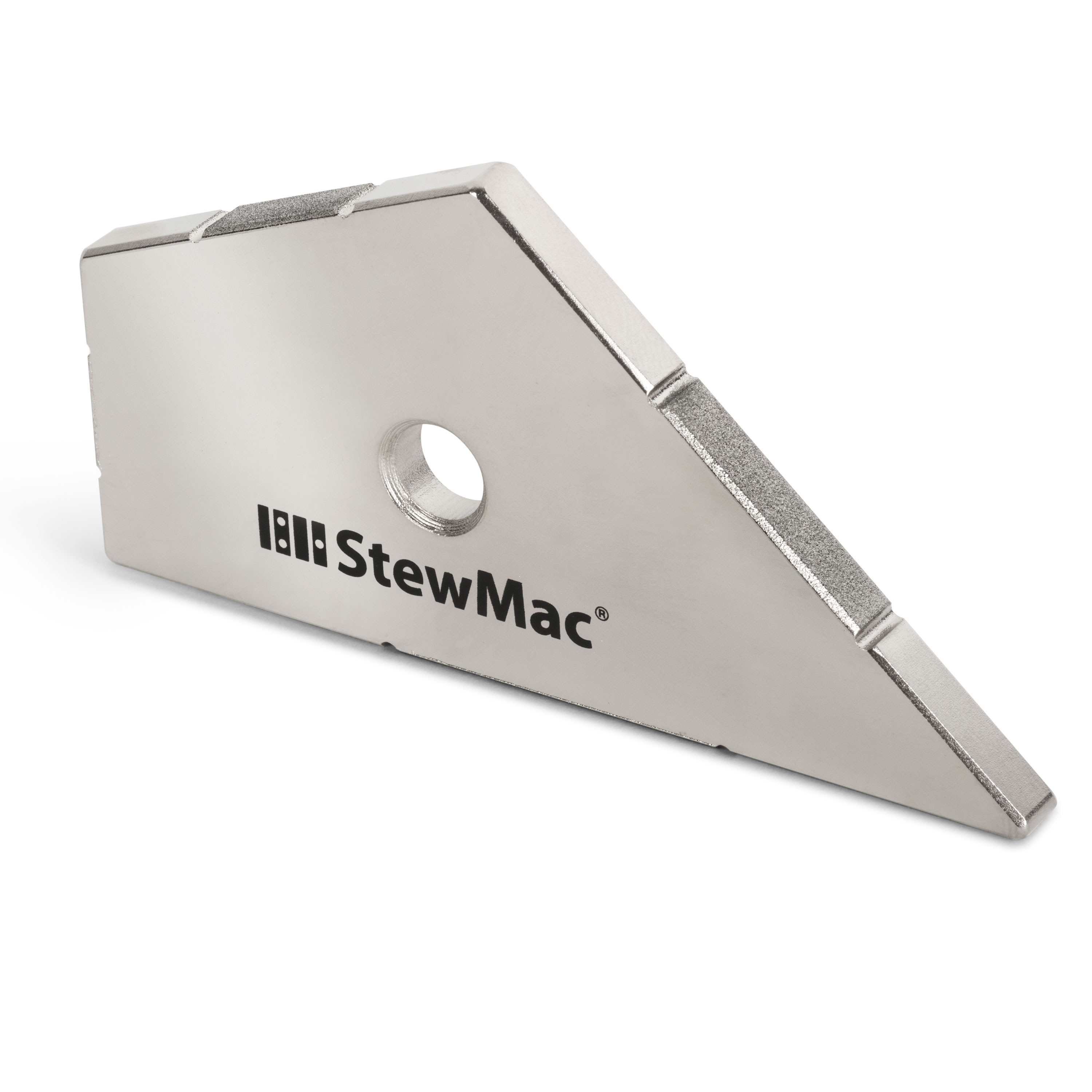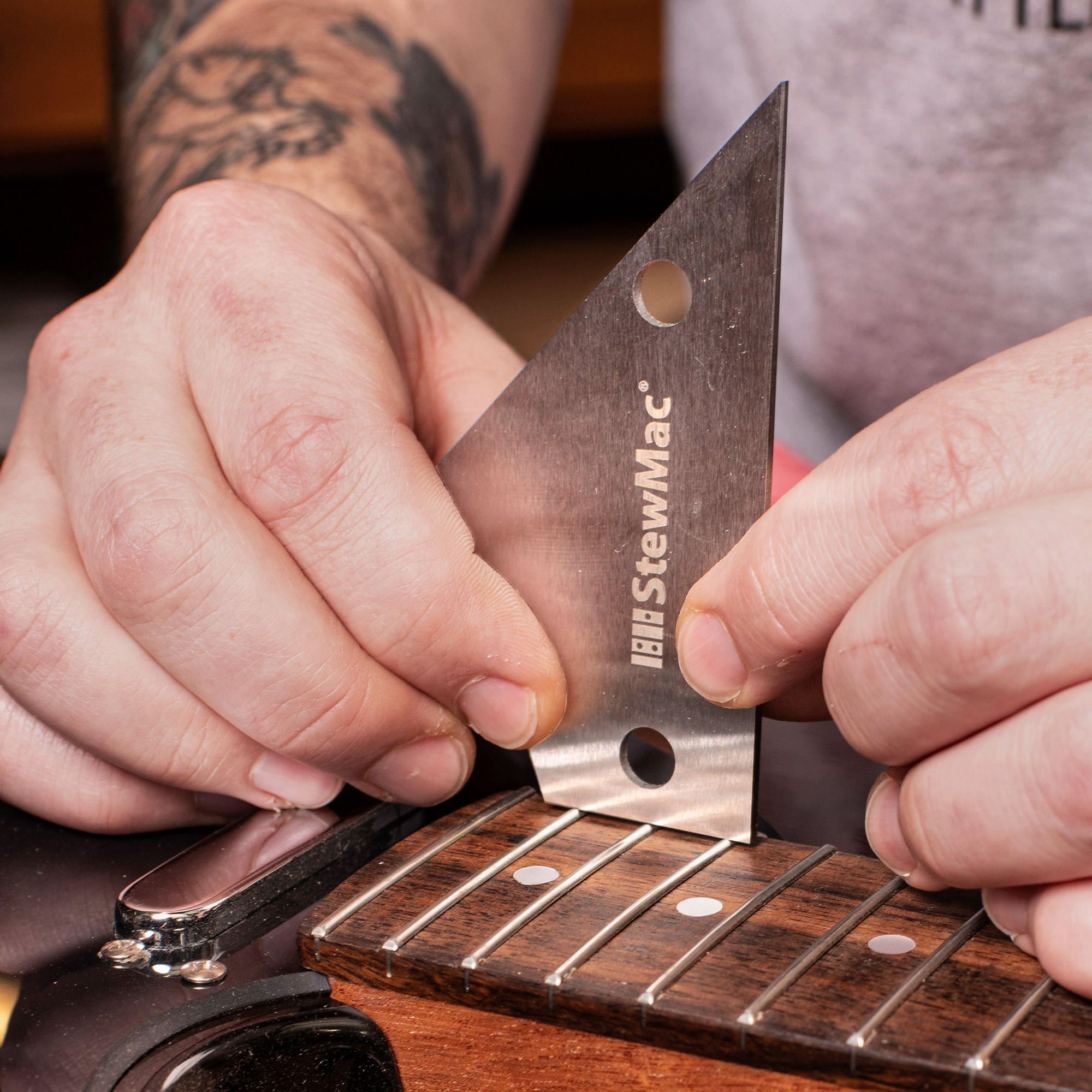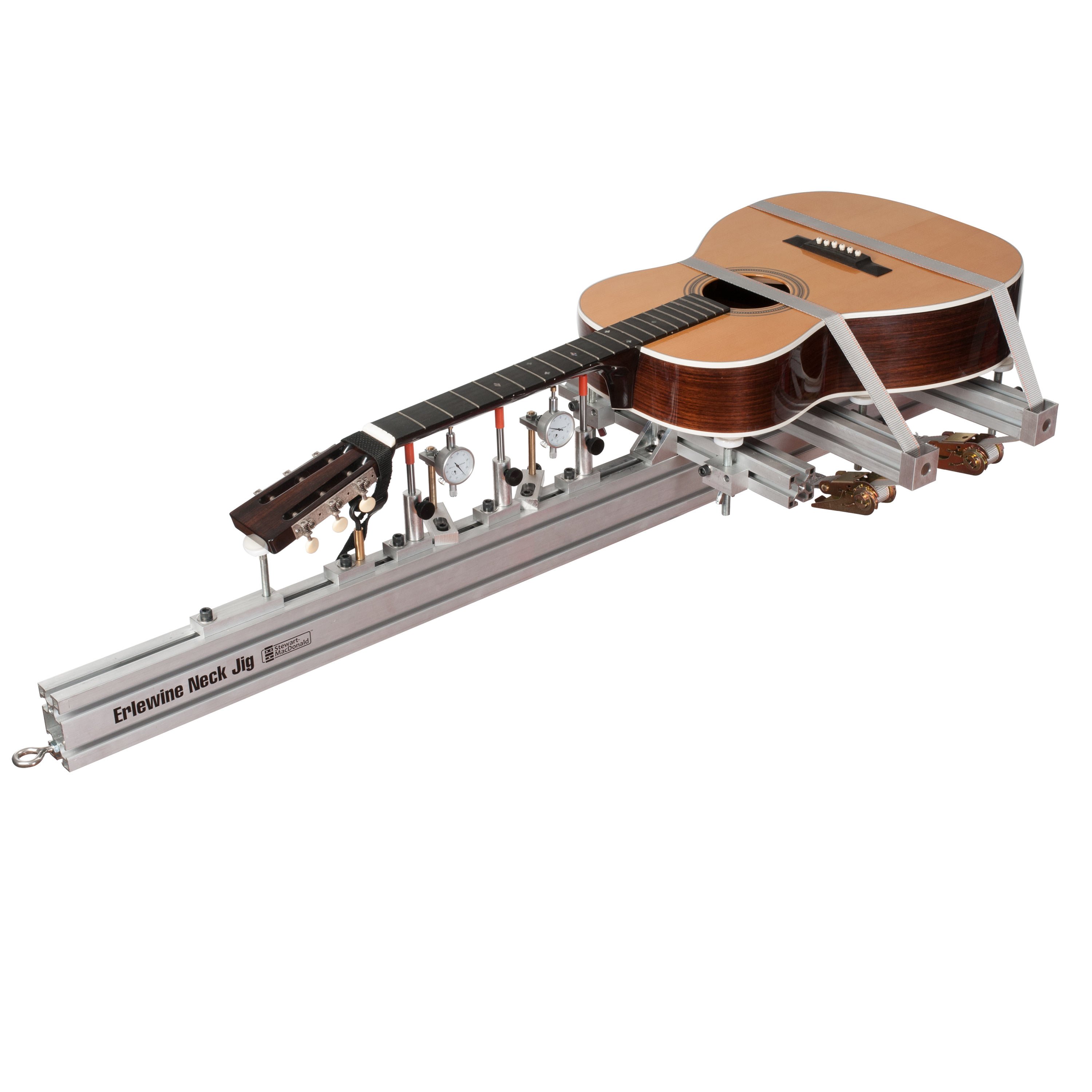Commission Your Dream Guitar (with Tips from the Pros!)
If you've ever thought about commissioning a custom guitar from a luthier, check out these tips and tricks from Paul and Logan at Dream Guitars to help you avoid common mistakes and help you get the guitar of your dreams.
Video Transcription
Erick Coleman: Oh, man. We are in Chicago at the Old Town School of Folk Music for the 2023 Fretboard Summit, hosted by our friends at Fretboard Journal. This is quite an event. There is so much going on. It's been really hard to catch it all. Exhibitions? Boy, I saw the Blue Guitar exhibit, a project that was commissioned by a guy named Scott Chinery who commissioned a bunch of well-known builders to all build a beautiful blue archtop. There are workshops that show you how to be a better player. Amp and pedal builders here. There are contests, also some amazing concerts. But what we're all really here for are the guitars.
I love custom-made guitars. They're my favorite things. They're my favorite instruments that I own. Some players get to a certain point where their Gibsons and their Fenders just don't quite cut it anymore. They want something a little more advanced to help take their music and they're playing to the next level. When you get to the point where you're kind of over your run-of-the-mill factory instrument and you're getting ready to make that step into owning or buying a custom guitar, we're going to talk to Logan and Paul from Dream Guitars and they're going to walk us through the do's and dont's about navigating the process of ordering a new instrument.
Paul Heumiller's thoughts on custom guitars
Paul Heumiller: Dream Guitars, I founded it because of one guitar. I met a pro who became my mentor and I was getting to be a really good player and he said, "You just need a better guitar. You'll see that the guitar brings things out of you that you're not currently hearing." I scraped and saved and I bought the best handmade guitar I could get at the time. It happened to be a Stefan Sobel guitar from England made out of Brazilian rosewood, and the number one thing that guitar did is I could not be in the room with it without grabbing it and playing it, so it made my playing go through the roof. So inspiration is a big reason.
We believe the best guitars ever made are being made today. What I do and we do is go around the world and look for that. First of all, what is a custom guitar? Well, it seems pretty obvious, but it's really commissioning a guitar with a builder either directly or through somebody you trust, like us, to custom build a guitar to your specifications.
I constantly describe my personal number one guitar as ... to me it feels like your favorite pair of blue jeans. You put on those jeans and it just feels like, "Oh, I'm home." It's comfort. It's like going home.
I've had grown men cry in my shop playing a guitar that for the first time in their life they were like ... it's like they've never touched a guitar before because they've never heard the openness and the beauty that can come from a Jeff Traugott or Isaac Jang or whatever speaks to your personal heart, of course, but what I want to jump into here is how to get it right. So you want to buy a custom guitar? How do you avoid some of the mistakes we've seen over the years?
How to avoid mistakes when commissioning a custom guitar
Top things to do when you're buying the custom guitar, a gentleman just came up to me a few moments ago and he said to me, "Paul, one of the most important things that I learned is to not have preconceived notions." He gave a couple of concrete examples. He said, "When I saw a guitar with a sound port for the first time, I thought who would ever put a hole in the side of a guitar?" But once he played one, he said, "Oh, I get it", and he went out and custom-built one.
Sound ports
Logan Wells: The sound ports, I don't know if you've seen those before, it's a small hole, drill it into the upper bout on the bass side of the guitar and it just projects that to you a little bit more better. There's a guy who described it to me as a ... it's your personal soundhole, which ...
Paul: More me in the monitor please.
Logan: More me in the monitor.
Fanned frets
Paul: Same thing with fanned fret guitars. We have lots of people look at fan frets and it's intimidating. They're like, "Oh, that's weird", but you play one, you realize, "Oh, there's a lot of benefits and by the way, I like to play in DADGAD and C tunings, so fanned fret makes perfect sense, Paul."
Logan: The fan fret or multi-scale fingerboard still feels comfortable. Your hand does this a little bit anyways.
Paul: If you play air guitar and just play a chromatic scale, as you go down the neck, your fingers do this. They spread in and out, so people are totally surprised. One of my favorite things in the shop is to hand somebody a fanned fret and not tell them, and they just start playing and they don't even notice it.
Certain woods, lots of people ... He gave another example. First time he ever played an oak guitar, he had preconceived notions that that would never sound good.
Budget considerations
Thinking about your budget and our shop, most of our custom guitars start closer to $10,000 and go up, but there are makers you can get for $5,000, $6,000, $7,000. There are makers regionally you'll find more closer to your home, in the $2,000, $3,000, $4,000 range, and then of course the more custom they are, we commonly build guitars that are 4$0,000, $50,000, but those are heirloom guitars that are actually going up in value every year. So really think about your budget because if you have $5,000, I'm very likely to say to you, "You know what? You're better off buying pre-owned", because you can get something from a mid-level maker that was brand new, maybe it was $7,000 a few years ago and now you can afford that guitar and it's going to be a big step-up than what you might even get custom brand new.
Ergonomics
Logan: Do consider ergonomics. Keep in mind that there's a lot of ergonomic features that you can dial in, be it an arm bevel or multi-scale setup, my personal preference, to have a very comfortable guitar today.
And also necks. If you have a particular neck profile that you love, if you have a guitar that you just adore the neck on it, if you're able to use a relief gauge to get a contour and figure out what the neck is actually carved like and you can submit that to the builder, they can recreate that neck to a tee.
Your intentions for the guitar
Paul: Be clear on your intentions for doing a custom build and be clear on the type of buyer you are. Some people are getting a custom guitar and they should know that they're the type of person that's going to resell it in a year, or they're the kind of person that never resells them or they're the kind of person that wants to hand them off to their children. That's a very different approach to why you're building.
Don't overpersonalize
But don't over personalize the guitar. Even though you're custom building, it's going to be a temptation. You're going to want to do something that's really just for you.
You might love the fact that you have your nickname in two-inch inlay on the fingerboard, but again, keep in mind the guitar may not want to be yours forever, so that's going to have to be undone. We many times have to cut out the 12th fret of a guitar and replace it with a piece of ebony because someone's initials are there, which makes it unsellable.
Don't tell the luthier what you want to build
Don't tell the luthier what you want to build. Sometimes I have people who are building their first guitar and they go, "I think I read somewhere if it's an eighth of an inch thicker, it's going to have more bass. Can we do that?" I'm like, "No." You're asking Isaac Jang to build your guitar, Jordan McConnell to build your guitar because you heard their guitar and thought "That's amazing." Trust them and let them do their work. They are the luthier. I'm not, and you're not.
To over dictate what you want the builder to do can be a problem, because they're creative people, and if you take away that creativity by saying, "It must be like this, this and this", you're going to lose the potential that that guitar has. The best builds I've ever done is when the client says, "I know I want this shape and I need this nut width, but other than that I want him to do his art", and that's when you get the special stuff. I've seen builders do incredible work because they've had some creativity and some room to do their best for the client.
Wood combinations
Wood combinations. Many times people call me and they say, "I want to build this Egyptian redwood with this ironwood that was in a castle." Builders know the woods and they also, by the way, have already had the wood for your guitar in their shop and it's probably been there for 5, 10 or 20 years. A lot of people call me up and say, "Well, I got the set at a garage sale five years ago. Can I use that?" No. It takes years for them to prepare the wood and make sure that it's cured and dried the way they want it and all of that.
Be aware of climate
Another thing that you want to be aware of is climate. Where do you live and where does the builder live and make sure the builder knows where you live. A real quick story about that is I had a young maker from Korea hound me for a year to try his guitar, and finally I acquiesced and he sent it to me and it was hanging in the shop for a weekend and I'm sitting there in the morning working, I hear, boom, and the guitar split in half on the wall. It just exploded. Because he built it like 110% humidity and then sent it to me. So you at least want to have the conversation with the builder. "Hey, I live in Arizona where it's really dry. I live on an island where it's 70, 80% humidity all the time. I want to use this on my boat. I'll sell you a carbon fiber guitar for that."
Don't rush the builder
Logan: Don't rush. Don't rush the builder to get the thing done. Because if they're not having fun, if they're not enjoying the process of building an instrument, it's probably not going to turn up as well as it could if they were excited and inspired to build that guitar.
Paul: If you know anything about luthiers, who here knows that luthiers tend to be a little bit late? Anybody? But if you push the builder, some clients are just like, "You said it was going to be in February." What could happen is they rush a little bit and you don't get the quality that you want. If you work with us, I pad the builder time. So if they tell me they can deliver in February, I'm going to tell you June or July, so I'm going to try to under-promise, over-deliver, I guess they say.
Logan: To continue along that, be patient. Be patient for the guitar to be built and then also be patient for the guitar to wake up.
Paul: Don't expect the guitar to be wide awake day one. A brand new guitar takes a minute. Some people order a custom guitar and then they're disappointed, but they ordered an Adirondack Spruce top because Tony Rice played that, but Adirondack Spruce, everybody, all the builders would tell you, takes a year or two to start sounding its best. By the way, that's a year or two of playing it every day. It's not a year or two in your case.
Another great reason to build a custom guitar is to support these amazing artists in our life. Very experienced builders tell me that 30 years ago, all the builders kept their own secrets, like, "Don't look under the hood of my guitar." Now, it's not like that. They share like crazy. You've got all these organizations, YoGal and Asia and shows like this where the builders are hanging out and so the level of artistry is through the roof, and I mean that tonally, I mean that visually, I mean that ergonomically. I think supporting these people that are giving this artistry to the world is a beautiful thing.
[fast guitar music playing]
Recommendations for commissioning a custom guitar from other luthiers
[on-screen text reads: Matt Proctor - M-tone Guitars]
Matt Proctor: When you first build with a custom person, you want to do everything. You want to make this guitar that has seven pickups and just all this stuff, but see what the builder wants to do because they'll probably steer you in the right direction and listen to them and take advice and make it a real two-way street. Make sure it's a fun thing.
[on-screen text reads: Paul Hamer - H Guitars]
Paul Hamer: Well, you need to find somebody that you can work with. That's number one. Find someone that could be a new friend who's a luthier, that's going to listen to you, listen to the sound that you want, and then try to get that for you.
[on-screen text reads: Noemi Schembri - Noemi Guitars]
Noemi Schembri: What I usually do is I start, of course, by email or by phone calls and I ask them sending me audio or video of sounds that they like it. I don't care which brand or if they are playing or somebody else is playing. This way I can understand more which sound they are looking for.
[on-screen text reads: Kevin Wright - Reywas Guitars]
Kevin Wright: You have to take the name out of the equation. Forget about Fender, Ibanez, Gibson. I mean, they're all great brands, but if you're looking for something custom, pick up the guitar, play it, hear it. Comes down to playability and how it sounds. That's really what you're looking for and that should be your starting point.
[on-screen text reads: Ben Macintyre - Iris Guitar Company]
Ben Macintyre: Have fun with it. Play as many different guitars from as many different builders as you can.
[on-screen text reads: Goran Ivanovic - Saers Guitars]
Goran Ivanovic: Don't go for the best known brand. Look what people are saying on the streets.
[on-screen text reads: Maegen Wells - Maegen Wells Guitars & Mandolins]
Maegen Wells: There are elements that are customizable and then there are things that aren't, such as my body shape, my body size, my headstock, my tailpiece designs, those things somebody can't come to me and be like, "Oh, I really like this, but can we tweak this here and there?" No. Those are things that have taken me many, many years to arrive at. There's a lot of failure and success behind those designs that have led me to arrive there, and frankly, that's why people come to me is for that experience, and so they trust me there. But when it comes to, I mean our material choices, the colors, the tone, how we like our necks to feel, those are the most customizable areas of my guitars.
[on-screen text reads: Anthony Lattanz - Lattanze Guitars]
Anthony Lattanz: What I like to do with my customers is I do a rendering before I start in CAD and then we can kind of tweak things before we even start. I wouldn't want to discourage my customer from doing things, more like problem solve like, "Okay, how can we make this work and still achieve something that I'm proud of as well?" Because at the end of the day, my name will be on the moniker, and I don't want it to be so far out of the style that I kind of want to go for.
[on-screen text reads: Goran Ivanovic - Saers Guitars]
Goran: If the scale is 630, we will make a smaller neck, but we will not make a neck that's like an acoustic guitar, like a U-shaped neck. We'll let the other big companies do that and we want our customers to know what a traditional Spanish made instrument is. Going away from a traditional built is maybe not the best idea for us.
[on-screen text reads: Brian Dickel - Huss & Dalton Guitar Company]
Brian Dickel: I try not to say no to people if it's really passionate. It's kind of like a tattoo. It's personal to them. You may not find it your favorite thing in the world, but you do it to the best of your ability to make them happy too.
[on-screen text reads: Micah Bruce - Bruce Guitars]
Micah Bruce: I kind of do both. I'll build instruments that I like kind of as a spec model, and then I'll build custom stuff. People will request different inlays or different woods or binding, trim options.
[on-screen text reads: Jason Kostal - Kostal Guitars]
Jason Kostal: We all have things that we do that are kind of our signature and those are important because they're identifying our art. It's the same as literally signing a piece of art at the end of it. For me, it's my headstock design, my rosette, and some of the decorative appointments. If somebody comes to me and says, "I want one of your guitars, but I don't want those things", it's very difficult to say, "Oh, let me omit them because that's part of my brand." Those signature things I tend to stick with and then everything else is up for discussion and some things fall within my wheelhouse, and I feel very confident that I can build the best guitar I can build and give them the product they're looking for. Other times I say, "That's not my strong suit, and you'd be better off going to this other builder who's very well known for that."
[on-screen text reads: Ben Macintyre - Iris Guitar Company]
Ben: There's that sort of almost white glove treatment that you don't necessarily get from a bigger company where someone is on the ground making sure that your vision as a player and as the purchaser of this instrument is being realized and it's going to come out at the end how you envisioned it and how you wanted it.
[on-screen text reads: Drew Heinonen - T. Drew Heinonen Guitars]
Drew Heinonen: Well, I would generally say to trust your luthier, the majority of us are in it for the passion of it and the love and the art and the community. We want as builders to be able to create them a one-of-a-kind special instrument that will hopefully hold a dear place to them and bring inspiration into their life.
[on-screen text reads: Maegen Wells - Maegen Wells Guitars & Mandolins]
Maegen: All of that good energy just goes right into the instrument. It really does.
[on-screen text reads: Noemi Schembri - Noemi Guitars]
Noemi Schembri: I think it opens your mind also. Even if at the end you don't buy it because maybe you don't like it or it's too expensive, just try it so you can feel the difference in playing, its sound, the feeling.
[on-screen text reads: Micah Bruce - Bruce Guitars]
Micah: You don't know what you're missing. It's a whole experience, the whole start to finish, especially commissioning a build, but even buying one that's built already, it just has its own unique fingerprint.

